Everything You Need to Know About best teeth whitening light
- Everything You Need to Know About best teeth whitening light
- Introduction: Why the right whitening light matters
- How teeth whitening works
- Chemistry behind whitening gels and stains
- Types of whitening lights
- LED lights
- Blue light vs full-spectrum LED
- UV and halogen lights—why they’re less favored
- Do whitening lights actually work?
- What research shows
- Real-world factors that influence effectiveness
- Safety and side effects
- Sensitivity and gum irritation
- Heat, soft tissue, and enamel considerations
- Choosing the best teeth whitening light
- Look for clinical validation
- Wavelength and power output
- Design, comfort, and user experience
- Professional vs at-home systems
- Professional in-office systems
- At-home LED-accelerated kits
- How to use a whitening light safely at home
- Step-by-step safe protocol
- Timing and frequency
- Selecting gels and formulations
- Peroxide concentration and formulation
- Strips, pens, trays—what pairs best with a light?
- Why choose Double White for teeth whitening solutions
- Industry expertise and product customization
- Quality control and product support
- Common myths about whitening lights
- Myth: Lights are required for whitening
- Myth: Brighter light equals better results
- Conclusion: Finding the best teeth whitening light for you
- Summary and practical recommendation
Everything You Need to Know About best teeth whitening light
Introduction: Why the right whitening light matters
Choosing the best teeth whitening light can affect results, safety, and comfort. With the surge of at-home whitening kits and professional treatments, lights—mostly LED-based—have become a major selling point. This guide explains how whitening lights work, compares types, summarizes the science, highlights safety considerations, and offers practical buying and usage tips. It also introduces Double White, a professional oral care manufacturer with extensive experience in whitening products and customization.
How teeth whitening works
Chemistry behind whitening gels and stains
Teeth whitening typically relies on peroxide-based gels—hydrogen peroxide or carbamide peroxide—that penetrate enamel and dentin to oxidize stain molecules. In-office professional treatments often use hydrogen peroxide at higher concentrations (commonly 25–40%) applied for short sessions. At-home kits more often use carbamide peroxide at concentrations from 10–35%, which breaks down into hydrogen peroxide (roughly one third of the carbamide peroxide concentration) and acts more slowly. The gel is the active agent; lights aim to accelerate or enhance its action.
Types of whitening lights
LED lights
LED (light-emitting diode) lights are the most common for both professional and at-home devices. They emit narrow-wavelength light—often in the blue range (around 400–490 nm). LED lights are popular because they run cool, are energy-efficient, and can be used safely for short exposure times.
Blue light vs full-spectrum LED
Blue LED (about 450–480 nm) matches the absorption peaks of many photosensitizers and is believed to help activate some whitening gels. Some devices use a combination of LEDs to provide a broader spectrum. Full-spectrum or white LEDs cover more wavelengths but offer no clear advantage in most clinical studies for standard peroxide gels.
UV and halogen lights—why they’re less favored
UV lights and halogen lamps were used historically but are now less common because of greater heat production and potential tissue damage. UV can increase whitening speed but may raise risks like soft tissue irritation and enamel surface changes if not controlled. Modern LED systems avoid UV output for safety.
Do whitening lights actually work?
What research shows
Clinical evidence is mixed. Many studies find that lights can slightly speed up peroxide breakdown and improve immediate whitening when paired with certain gels and protocols. Other studies show minimal long-term advantage compared with gel-alone treatments. The effect often depends on gel concentration, exposure time, and whether a photosensitizing agent is present. In short, lights can help in some systems, but they are not a guaranteed multiplier of results.
Real-world factors that influence effectiveness
Key variables include peroxide concentration, contact time, application method, and tooth condition. Higher-concentration professional gels produce more dramatic short-term whitening. At-home kits with lower peroxide concentrations rely on repeated use. The best teeth whitening light improves the chemistry but cannot replace proper gel formulation, fit of trays or trays’ seal, or realistic expectations about intrinsic vs extrinsic stains.
Safety and side effects
Sensitivity and gum irritation
Sensitivity is the most common side effect of whitening and may increase with higher peroxide concentrations and longer exposures. Proper isolation of gums and following recommended times reduce risk. Lights themselves don’t directly cause sensitivity, but if they increase gel reactivity, sensitivity may be higher.
Heat, soft tissue, and enamel considerations
Modern LED lights have low heat output; however, poor devices that generate heat can risk soft tissue burns or temporary pulp irritation. Avoid UV-emitting devices. Using clinically validated devices and following manufacturer instructions minimises enamel surface alteration risks.
Choosing the best teeth whitening light
Look for clinical validation
Select devices with published clinical data or manufacturer-provided safety testing. Evidence of compatibility with peroxide concentrations you intend to use is important. For consumers, products that are FDA-cleared or CE-marked (where applicable) offer additional assurance of safety standards.
Wavelength and power output
Blue LED lights in the 400–490 nm range are most commonly supported by studies. Power output (measured in mW/cm2) should be sufficient to activate gels but not so high that heat is generated. Reputable manufacturers specify wavelength and irradiance; avoid devices that omit these details.
Design, comfort, and user experience
Consider mouthpiece design, battery life, and adjustable settings. Comfortable, well-fitting mouth trays or trays with good gel retention improve outcomes. For at-home use, a timer and comfortable bite design encourage adherence.
Professional vs at-home systems
Professional in-office systems
Professional systems combine higher-concentration peroxide gels with powerful light units and trained supervision. They typically deliver faster results in one or a few visits, but cost more. Office systems follow strict isolation protocols to protect gums and soft tissues.
At-home LED-accelerated kits
At-home kits often pair lower-concentration gels with portable LED lights. They are more affordable and convenient. While results are usually slower than in-office treatments, consistent use over days to weeks yields visible improvement. For many users, an at-home LED kit with a quality gel provides a good balance of cost and effectiveness.
How to use a whitening light safely at home
Step-by-step safe protocol
1) Read product instructions and safety warnings. 2) Brush and floss before treatment. 3) Apply gel to trays or use strips per directions—avoid excess that contacts gums. 4) Insert mouthpiece/mouth tray and operate the LED light for the recommended time. 5) Rinse thoroughly and follow post-treatment care. 6) Use sensitivity-reducing toothpaste or desensitizing gel if needed. Stop use if severe irritation occurs and consult a dentist.
Timing and frequency
Follow the manufacturer’s schedule—commonly 10–30 minutes per session for LED-accelerated home kits—and avoid doubling sessions to speed effects. Professional protocols vary but are supervised for safety. Overuse risks sensitivity and gum irritation without improving whiteness proportionally.
Selecting gels and formulations
Peroxide concentration and formulation
At-home gels usually contain 10–22% carbamide peroxide (about 3–7% hydrogen peroxide equivalent). In-office gels commonly use 25–40% hydrogen peroxide. Gels with stabilizers, appropriate pH balance, and desensitizing agents (potassium nitrate, fluoride) can improve comfort and results. The best teeth whitening light works best with a gel formulated for light activation or proven to be compatible with light-assisted protocols.
Strips, pens, trays—what pairs best with a light?
Trays that hold gel in close contact with teeth are ideal when using a light. Whitening strips are designed for gel-on-tooth contact but may not pair conveniently with a mouthpiece light. Pens are good for touch-ups but have limited gel volume and contact time, so they rarely benefit from light devices.
Why choose Double White for teeth whitening solutions
Industry expertise and product customization
Double White is a professional organization specializing in the R&D and manufacture of oral care products. With strong biotech development capability, Double White integrates scientific research, production, strategic planning, and brand management. The company offers a range of whitening products—strips, gels, pens—and provides free samples and customized packaging. As the No.1 teeth whitening kit supplier in China (company-reported), Double White supports private-label and OEM clients worldwide, positioning itself as a partner for brands seeking reliable formulation and manufacturing expertise.
Quality control and product support
Double White emphasizes rigorous scientific research and strict manufacturing control. If you are looking to create a light-compatible gel or an at-home LED kit with custom packaging, Double White can assist with formulations, stability testing, and compliance requirements. Visit https://www.double-white.com/ for product details and contact options.
Common myths about whitening lights
Myth: Lights are required for whitening
Truth: Peroxide gels alone can whiten teeth. Lights may accelerate the process in some systems but are not strictly required to achieve whitening with quality gels and adequate contact time.
Myth: Brighter light equals better results
Truth: Intensity must be balanced with safety. Excessive irradiance or UV output can cause heat-related issues. Device specifications, wavelength, and compatibility with gel chemistry determine effectiveness—not just raw brightness.
Conclusion: Finding the best teeth whitening light for you
Summary and practical recommendation
Choosing the best teeth whitening light means looking for devices with clinical validation, safe blue-LED wavelengths (around 400–490 nm), clear power specifications, and good user design. Pair any light with a high-quality gel appropriate for the intended treatment (in-office vs at-home). For consumers, an LED-accelerated at-home kit with credible safety claims, a comfortable mouthpiece, and a reputable manufacturer provides a balanced option. For brands and clinics, partnering with experienced manufacturers like Double White ensures reliable formulation, testing, and customization for light-compatible whitening systems.
When in doubt, consult a dental professional to assess tooth health and determine whether light-accelerated whitening is appropriate for your needs. Responsible use and realistic expectations deliver the best, longest-lasting results.
Frequently Asked Questions
Q: What is the single best teeth whitening light wavelength?A: Blue LED light in the 400–490 nm range is most commonly used and supported for activating peroxide-based gels, though exact optimal wavelength can depend on gel formulation.
Q: Can I use any whitening gel with an LED light?A: Not always. Use gels that are tested for light compatibility. Some gels are formulated for light-activation; others work fine without light but may not gain added benefit.
Q: Are LED whitening lights safe?A: Most modern LED devices are safe when used as directed. Avoid UV-emitting lights and devices that generate excessive heat. Follow manufacturer instructions and stop use if you experience severe pain or tissue irritation.
Q: How long before I see results with a light-assisted home kit?A: Many users see improvement within a few days to two weeks with consistent daily use. Results vary by initial tooth shade, gel strength, and usage adherence.
Q: Does whitening damage enamel?A: When used according to professional or manufacturer guidelines, peroxide-based whitening has minimal lasting impact on enamel structure. Temporary increased porosity or sensitivity can occur; following recommendations and not overusing products reduces risk.
Q: Why might a professional in-office light treatment be better than at-home?A: In-office treatments use higher peroxide concentrations under dental supervision, yielding faster and often more dramatic results. They also include professional isolation techniques to protect gums and soft tissues.
Recommended for you
Unveiling the Best Teeth Whitening Companies in San Jose: Your Guide to a Dazzling Smile
Whiten Your Teeth Easily - Double White
How to Buy Teeth Whitening Strip Wholesale: 10 Key Tips
Do Teeth Whitening Strips Damage Your Teeth? | Double White
About Customized Services
How long does customized service take?
The time for customized services depends on your specific needs and order volume. Generally speaking, we will provide you with customized solutions as soon as possible.
About After Sales Support
How to deal with product quality problems?
If you find that there are quality problems with your product, please contact our customer service team immediately and provide relevant evidence, we will handle it and provide you with a solution as soon as possible.
About Solution Suggestions
Is there a special formula for sensitive teeth?
Yes, we can provide special formulas and products for sensitive teeth to reduce irritation and discomfort to teeth and gums.
Can your company provide solutions to specific dental problems?
Yes, we can provide targeted solutions and suggestions based on different dental problems, including teeth whitening, orthodontics, etc.
About Product Choice
Can I use patches and pens for teeth whitening at the same time?
Yes, you can use teeth whitening patches and pens together as needed to speed up the whitening results and achieve better whitening results.

HP Teeth Whitening Alcohol-free Strips HPNA-01
Discover Double White’s HP Teeth Whitening Alcohol-free Strips HPNA-01, the best teeth whitening strips designed for a brighter smile without irritation. Alcohol-free formula ensures gentle yet effective whitening. Achieve professional results safely and easily at home with these top-rated teeth whitening strips.

HP Teeth Whitening Alcohol-free Strips HPNA-02
Double White’s HP Teeth Whitening Alcohol-free Strips HPNA-02 offer effective, gentle whitening without alcohol. These best whitening teeth strips deliver visible results, making them the good teeth whitening strips choice for a brighter smile. Try our whitening strips for teeth today!

Hydrogen Peroxide Residue Free Teeth Whitening Strips RFHP01
Double White Hydrogen Peroxide Residue Free Teeth Whitening Strips RFHP01 deliver the best quick teeth whitening results without residue. These best teeth whitening strips offer safe, effective brightening for a confident smile. Experience one of the best teeth whitening products today.

Hydrogen Peroxide Residue Free Teeth Whitening Strips RFHP02
100% tooth surface residue-free teeth strips represents the latest white teeth technology. This new product has strong adhesion on the teeth, but when peeled off, no gel-like substance remains on the tooth surface, leaving the teeth bright. Like new, no cleaning required.
Send us your inquiry
Reach out to us through the form below or via the contact information provided.
Our dedicated team is committed to providing prompt and personalized responses to all your queries.
Please fill out the fields above with your full name, email address, and comment.
Copyright © 2025 Double White All Rights Reserved. Designed by gooeyun

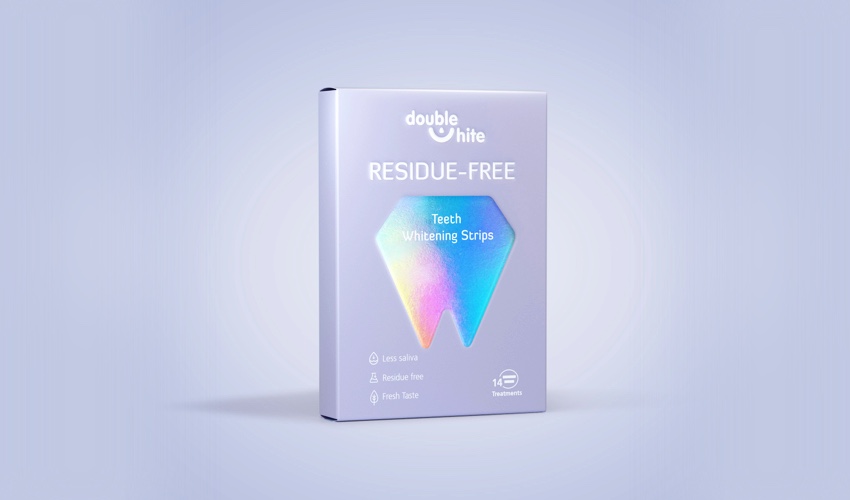
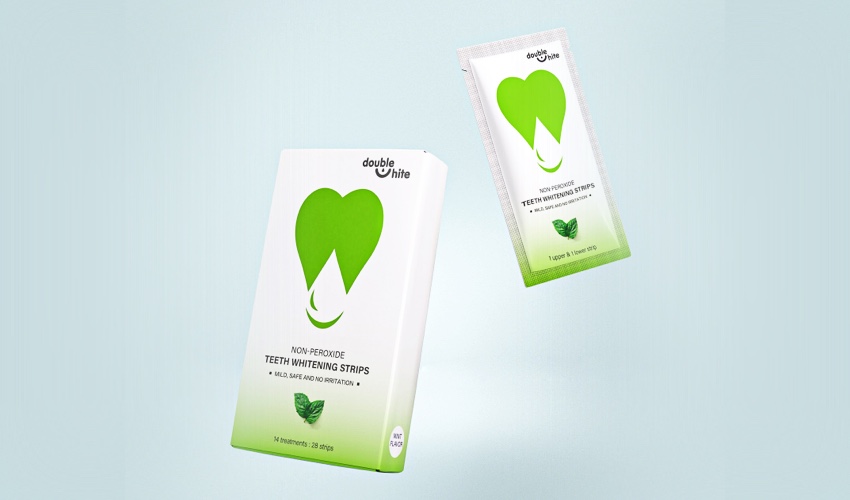
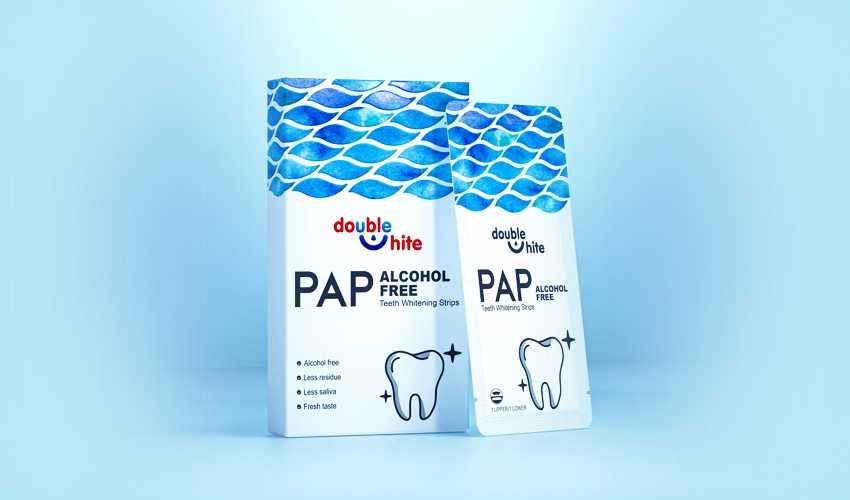
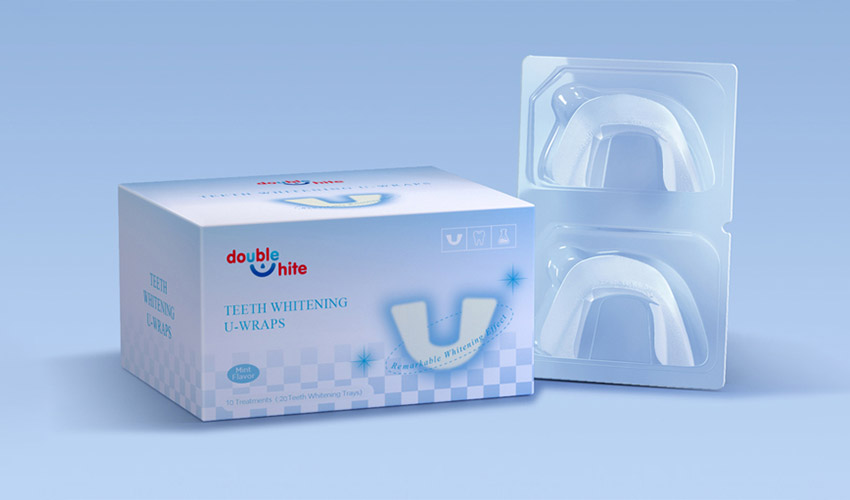
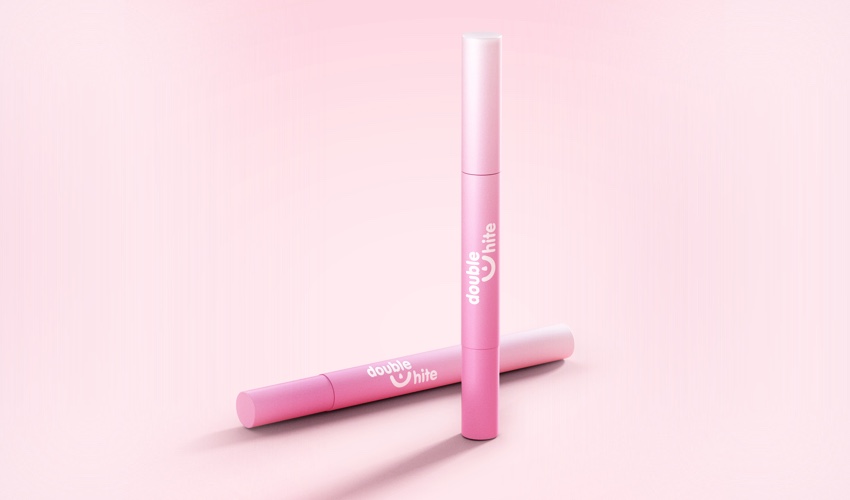
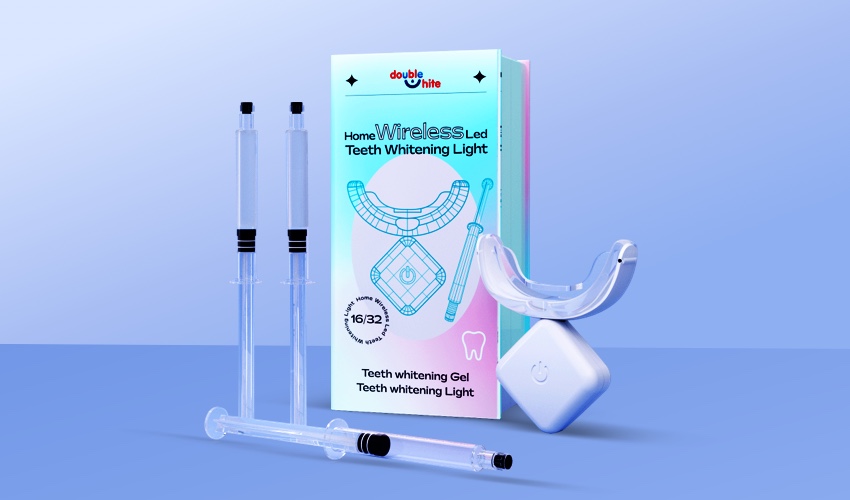
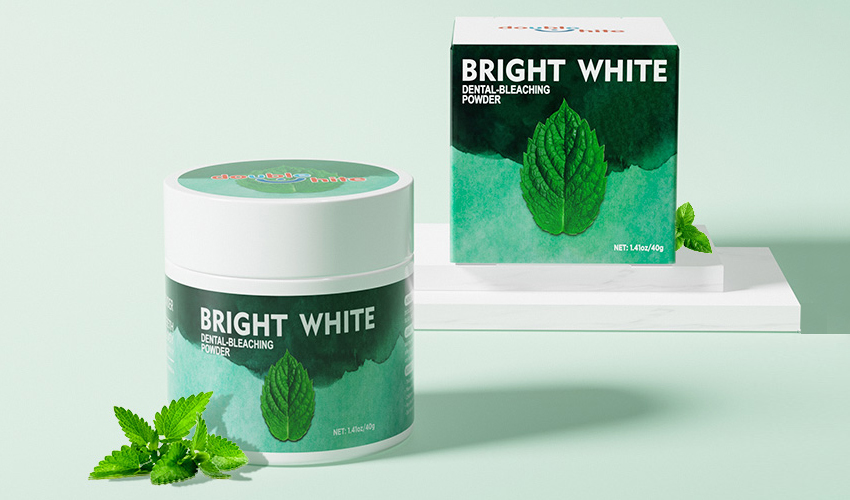






Whatsapp: +8615920313473
cndoublewhite
Doublewhite
doublewhitecn
cndoublewhite
cndoublewhite